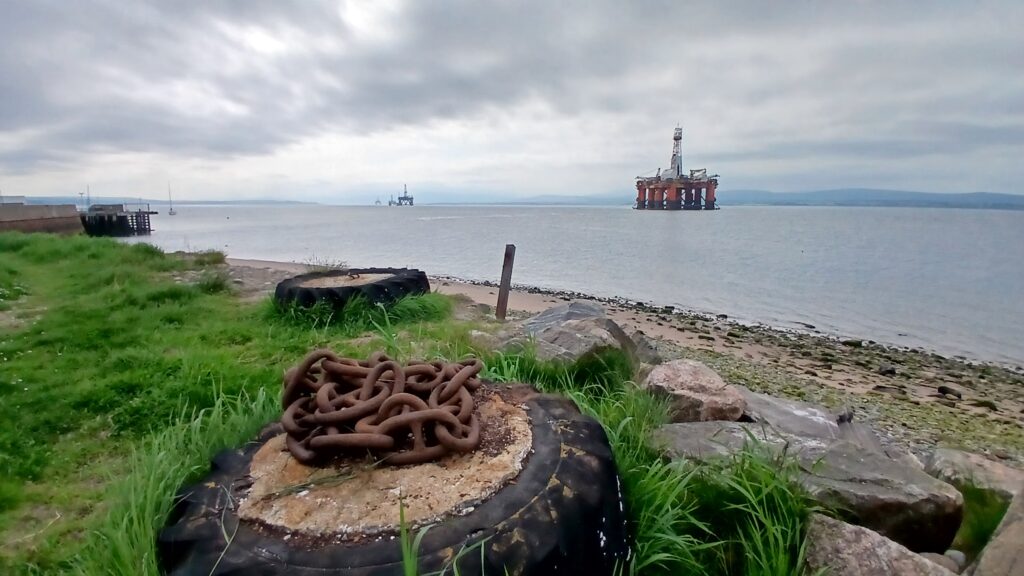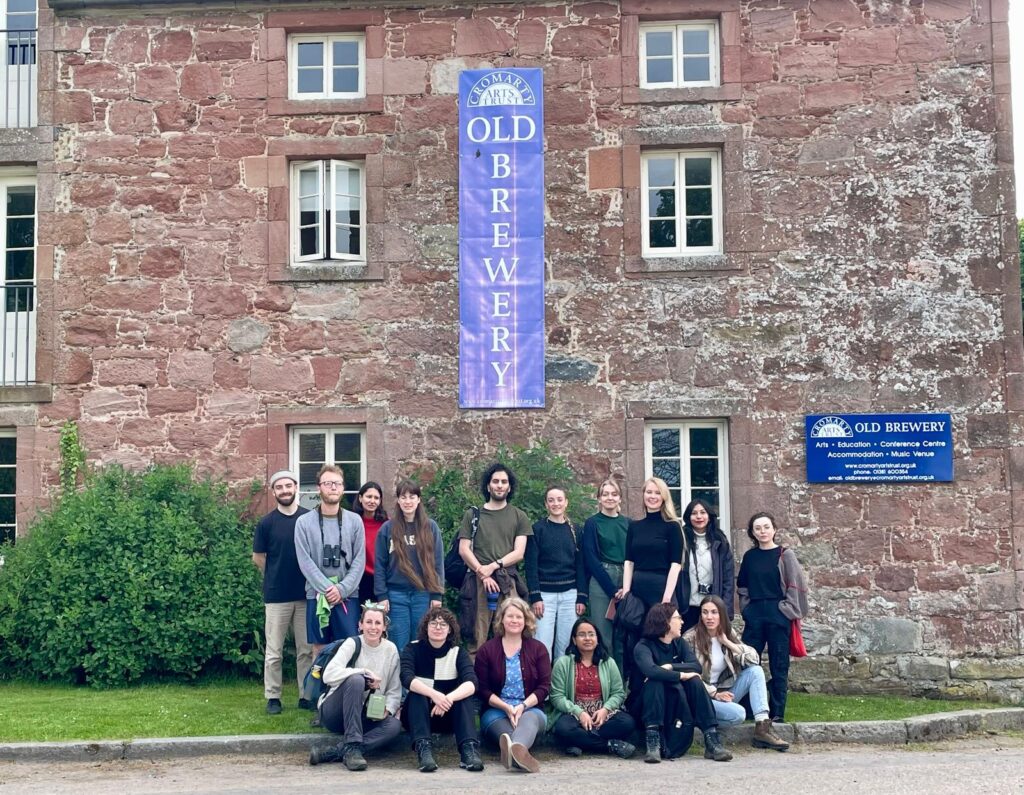By Marie-Claire Cameron
The 2024 Edinburgh Environmental Humanities Network PhD Lab were recently awarded a Student Experience Grant (University of Edinburgh) which supported a research retreat to Cromarty Arts Trust on the 17th-20th May 2024.
—
Cromarty: a seaside town from whose shores the rugged cliffs of Nigg can be observed meandering off into the horizon across the Cromarty Firth, teeming with vegetation and even the odd peregrine falcon. Cromarty’s seascape is also, however, a visual testament to the scale of Scotland’s Oil Industry. Looming over the shore stand the oil rigs of Invergordon, one of Europe’s premier port facilities for Oil and Gas works. The rigs remind the viewer that the Northeast of Scotland is not just a green landscape complete with quaint towns but the Oil capital of the UK. It was, aptly, amidst this rather unsettling juxtaposition that this year’s team of Environmental Humanities’ researchers gathered to engage critically with the theme of ‘Tidal Movements’ and tidal ecology. ‘Staying with the trouble’ of that which the oil rigs represent inevitably came to underpin the project.

Accordingly, Annie Gallagher’s opening workshop asked participants to engage deeply with the landscape through embodied practice upon the shore – in full sight of its contradictions. Dr Michelle Bastian hosted a complementary workshop in which participants were asked to think critically about Anna Tsing’s practice of ‘noticing,’ and in particular what comes after paying close attention.
Directing the ideas generated by the group thus far, Felix Clarke guided the researchers in collectively shaping the upcoming ASLE-UKI EEHN Panel Discussion and Conference. Matthew Lear suggested future projects for the Edinburgh Environmental Humanities Network, inviting participants to contribute to its formation, and which has led to the award of SGSAH Cohort Development Funding.
This was followed up by Eszter Erdosi’s PhD ‘CPR’- where individuals were provided with a safe space to voice concerns related to undertaking a PhD. Group support was prompted by peers, as well as professional guidance being provided by the lab mentor, Michelle.
Sea swims, beach walks, dolphin-watching and coastal exploration facilitated reflection between the workshops and the landscape of Cromarty itself. Conducting these activities in tandem with other researchers generated cross pollination between the various disciplines, providing rare opportunities for active – and often animated – discourse.
Furthermore, the communal consumption of (most enjoyable) meals was integral to many an interdisciplinary discussion. A great tray of roasted rhubarb, rosemary and potatoes was but one of the many delights over which the researchers endeavoured to develop an Environmental Humanities methodology promoting the responsible care of tidal ecologies.
The retreat was funded by the Edinburgh Student Experience Grant 2024. The grant was awarded to its successful applicants and the retreat organisers; Ciara Bolton, Matthew Lear, Grace Garland and Ellie Ballantine.
The participants were:
- Adam Frank (Philosophy, University of Dundee)
- Anne-Sophie Daffertshofer (School of Art History, University of St Andrews)
- Eszter Erdosi (Edinburgh College of Art, University of Edinburgh)
- Edda Starck (University of Aberdeen)
- Felix Clarke (School of Geosciences, University of Edinburgh)
- Keili Koppel (Edinburgh College of Art, University of Edinburgh)
- Matthew Lear (School of Literatures, Languages and Cultures, University of Edinburgh)
- Ciara Bolton (Edinburgh College of Art, University of Edinburgh)
- Mercedes Bernal Aguilar (University of Edinburgh)
- Nabanita Samanta: (Visiting SGSAH Earth Scholar, Indian Institute of Technology Bombay)
- Annie Gallagher: (Edinburgh College of Art, University of Edinburgh)
- Marie-Claire Cameron (University of Glasgow)
- Helena Hunter: (Nottingham Trent University)
- Ines Kirschner (University of Aberdeen)
- Juliane Rohrwacher (University of Leipzig)
- Lili Carr (Edinburgh College of Art, University of Edinburgh)
Support and guidance was provided by Dr Michelle Bastian, who kindly accompanied the students on this retreat.




